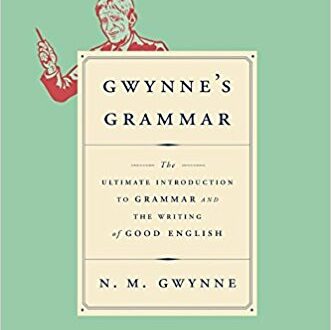No one lies about what happened to their homework anymore. We don’t tell teachers that the dog ate it, or that aliens stole it. Instead, contemporary excuses are of two sorts. The nativist excuse suggests that there is some innate deficiency in the student that determines that she is unable to achieve success in some discipline. For example, upon receiving a terrible grade on her math test, a student may remark, “I’m just not a math person.” According to the nativist, one’s success or failure is determined by an innate ability (or inability) to succeed in a given domain of learning. The excuse implies that failure on a test is no more the fault of the student than it is the fault of a car that it cannot laugh.
In contrast, the environment excuse does not presuppose a student’s innate ability. Instead the student claims that she is unable to achieve a task due to a deficient environment. “The house was too noisy,” “some friends came to stay,” or “I didn’t have enough sleep” are all environment excuses. This strategy presupposes that one is only obligated to do one’s homework if the environment is conducive to doing it. Otherwise, the student has no obligation to complete her homework.
Previous generations would have dismissed such excuses. Take, for example, a farming family living in medieval Britain. If the son said to his father that he was ‘just not a farming person’, the response would have been incredulity: ‘son, you have hands, right? You can pull a plough, right?…Okay, you are a farming person.’ To put it another way, (i) human beings are the kinds of things that can farm. (ii) The son is a human being. (iii) Ergo, the son can farm.
During the same period, if the son had said to his dad, ‘I’m unable to read Thomas Aquinas’, the father would be equally incredulous. ‘Son, you were born in farmhouse. Of course you can’t read Thomas Aquinas. If you had been born in Oxford to a family of academics, then you would be well versed in Thomas Aquinas.’ The premodern worldview considered the situation of one’s birth to be determinative of the form of life one would live. This was not perceived negatively, but as a feature of a rational design of the world.
The premodern’s form of life was determined by the family into which they were born, but their view of human nature presupposed that whatever tasks that form of life demanded were possible due to the fact that those tasks were the kind of tasks humans could do. In our post-modern context, the reverse is true. One’s situation of birth ought not to determine any form of life. On the other hand, we think that we have innatefeatures unique to each individual that determine what we can and cannot do.
In response to the new homework excuses, we should teach our children three things. First, though some humans are better than other humans at doing certain tasks, we don’t generally have innate features that make us non-math people. In other words, we should agree with the premodern – there is such a thing as human nature, a proper functioning of human beings according to our design.
Second, though what family one is born into has an effect on what opportunities are available, it is not determinative (at least in America) of what career path one may take. This is a modern idea but a good one. It is especially prominent in America and something I admire about this country.
Finally, though some environments are more or less conducive to doing homework, most are not preventing us from doing it at all and, therefore, do not absolve us of our responsibilities. Certain environments are less conducive to work, but most are not preventative. It seems to me that the environment excuse, if left unchecked, leads to a life in which blame for one’s shortcomings never falls anywhere near oneself.
The new excuses are not that new. The these excuses go back at least as far as the call of Moses (Exodus 3-4). At school, I often used the nativist excuse about poetry and math. But as I reflect on the matter, my main problem had nothing to do with not being apt. Instead, I think I was only interested in working on what interested me. If I was not personally invested in something, I did not spend much time on it. I regret being this way at school.




